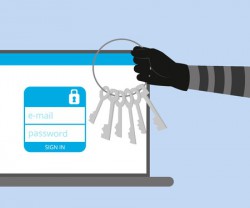
“Your deposit
Good day,
Your statement has been cancelled before we recorded contact with the bank.
More details are abailable here: your deposit.
With warm regards, the Volksbank team”
When the user clicks on the hyperlink, a .zip file will download that contains an executable file. The file name is extremely long in an attempt to hide the .exe extension. They look like these:
-
de_0000239029_rechnung_scan_hp_28_0000000904_page_2_10_01_05_id_00291002098.exe
-
E-Card_zu_Weichnachten_scan_foto_2834792347_12_2014_21093812_000129_001_004_002910.exe
-
Informationen_Kontobewegung_dezember_2014_de_20_8139_237_90109238_000129_000028_05.exe
The email also contains a .PDF file attachment where users are enticed to click on. Once downloaded, the file will install the malware on the users computer. Once the malware runs, it begins to monitor network activity and steals online banking credentials when a user attempts to log onto a banking website. The malware is also capable of stealing email account credentials and passwords from messaging programs. The information is then transmitted back to the hacker’s command and control server.
Microsoft found that the malware is stealing credentials from:
Emsisoft Endpoint Protection: Award-Winning Security Made Simple
Experience effortless next-gen technology. Start Free Trial- Gmail Notifier
- Google Desktop
- Google Talk
- Group Mail
- Mozilla Thunderbird
- MSN or Windows Live Messenger
- Netscape 6 and Netscape 7
- Windows Mail and Windows Live Mail
- Yahoo! Messenger
As with any new threat or an existing one, never open attachments or follow hyperlinks that you are not familiar with. These phishing attacks still occur because users still fall for the same tricks. The most important thing you can do to protect your identity is to be vigilant. If it does not look right or you are not sure, then do not click on that link or open that attachment. Ensure your Emsisoft Anti-Malware is enabled as well. Do not get caught off guard – hackers are depending on it.
